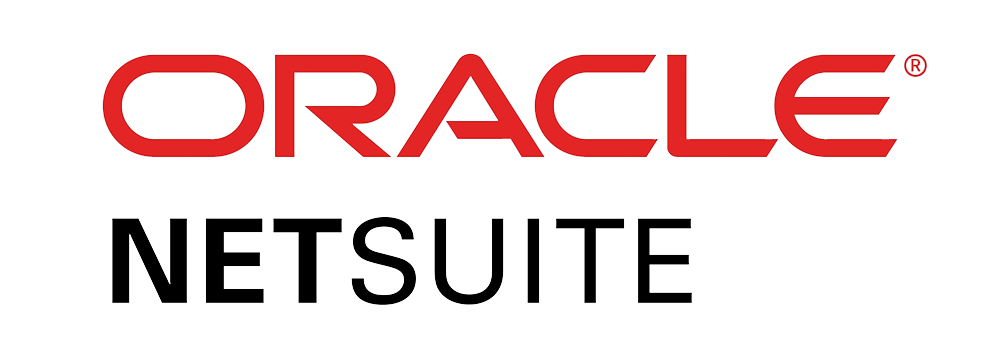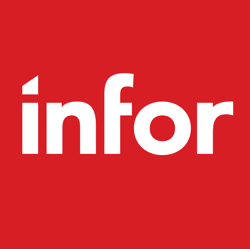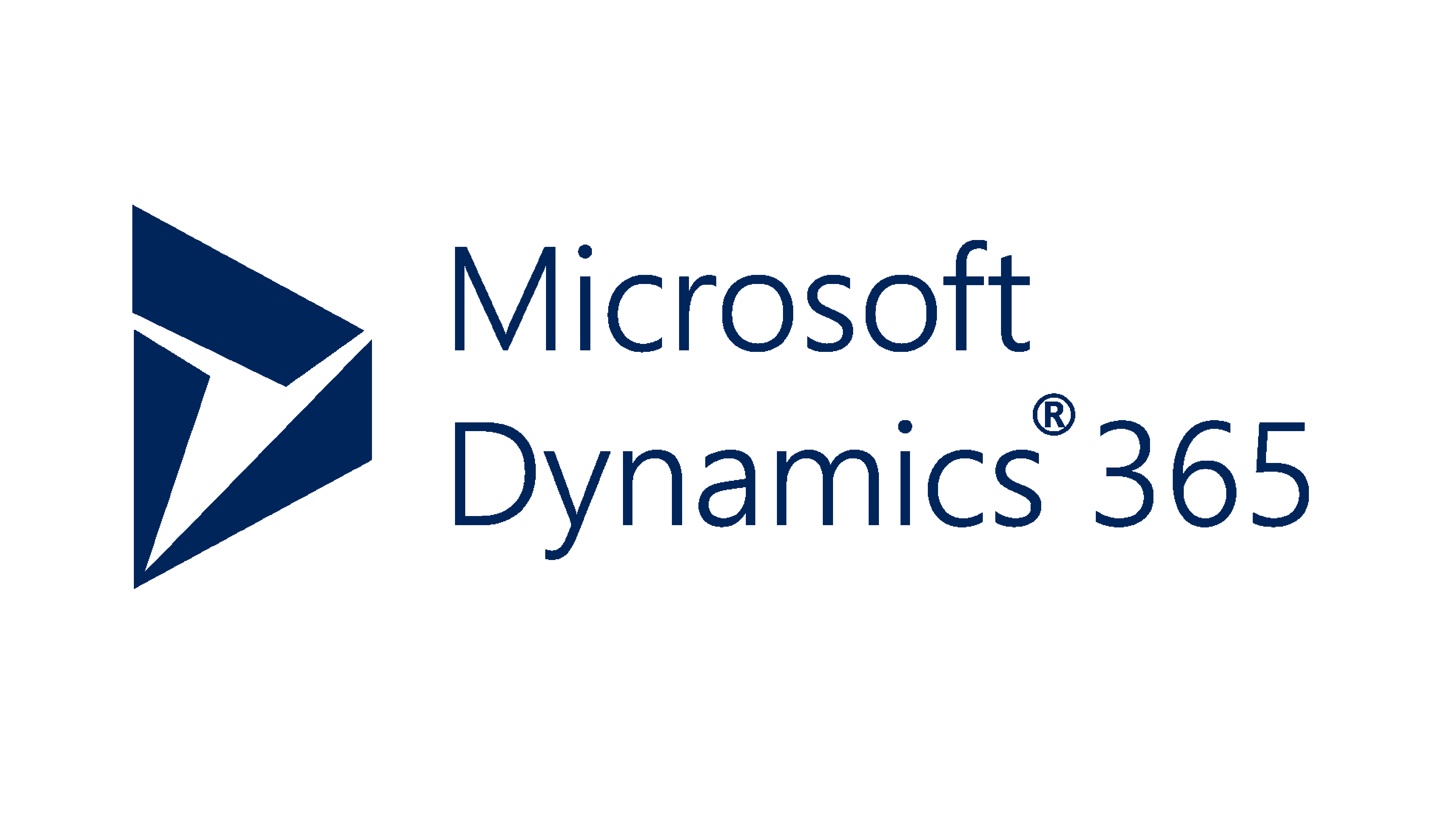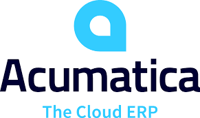ERP Software for Small Businesses
ERP systems for SMB & small businesses need to be cost effective, scalable and improve key business KPI's such as customer satisfaction and productvity.
At ERP Research, we help SMBs & small businesses to find the ERP software which will take them to their next stage of growth with 100% vendor agnostic advice.
Top 10 Small Business ERP Software Report
Get our free in depth comparison of the Top 10 ERP solutions available on the market for small businesses including Netsuite, Acumatica, Oracle, SAP and more.
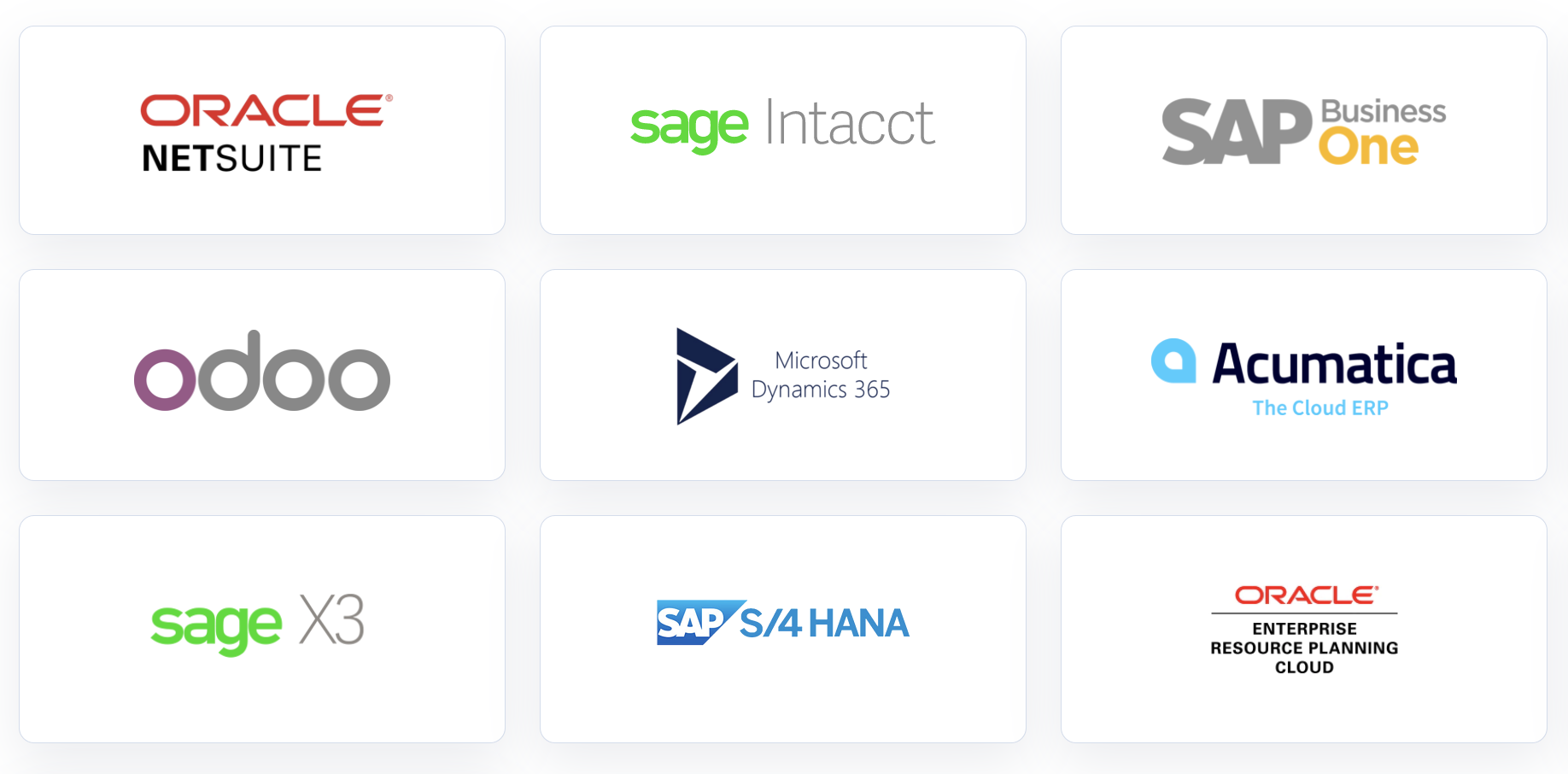
ERP Systems for Small Businesses
For small and medium sized businesses growing at a steady rate but still on a budget, it's important to be more scalable whilst looking after your wallet. Here are some cost effective, yet highly scalable solutions which many small businesses have adopted.
Sage Intacct
Sage Intacct ERP works well for small businesses operating in services industries and with global ambitions. Intacct provides ERP functionality spanning financial management, projects, billing and more.
SAP Business ByDesign
Whilst SAP is often not associated with small businesses, SAP Business ByDesign is. The solution offers rich functionality for orgsanizations in the professional services, manufacturing and life sciences industries.
Oracle Netsuite
Netsuite is synonomous with small business ERP solutions, offering a low barrier to entry for smaller companies, whilst offering a rich ecosystem and room for growth in almost any industry space.
SAP Business One
SAP Business One is a popular solution for small businesses in the product centric industries including manufacturing, wholesale and retail with many industry specific addons and solutions.
Odoo
Odoo ERP works well for small businesses that are looked for a low cost, adaptable and scalable ERP solution. Odoo is used by small and medium sized businesses in several industries.
Infor Cloudsuite Industrial
Infor CSI, also known as Syteline is another popular ERP solution for small businesses with complex, product centric business processes such as manufacturers and retailers.
FinancialForce
FinancialForce is a powerful financial management and services focussed ERP which provides strong integration to Salesforce as it's built on the same platform.
Priority ERP
Priority ERP is a flexible, cost effective ERP solution for small and medium sized businesses which can be deployed On-Premise or in the Cloud.
SYSPRO
Syspro is a popular ERP solution for small businesses in the retail, manufacturing and distribution space. It provides capabilities for
Cloud ERP for Small Businesses
Small businesses are well suited to adopting true software as a service ERP solutions, also known as Cloud ERP software. Here are some of the top Cloud ERP solutions for small businesses:
Sage Intacct
Sage Intacct ERP is a native Cloud ERP solution that was built for small businesses.
SAP Business ByDesign
SAP Business ByDesign is one of the top rated SaaS ERP solutions for small businesses, running natively in the Cloud.
Oracle Netsuite
Netsuite is a powerful all in one Cloud ERP solution for small businesses. Netsuite is a true SaaS Cloud ERP.
Odoo
Odoo Cloud ERP is used by many small businesses around the world and is low cost and flexible.
Microsoft Dynamics 365
Dynamics is a popular Cloud ERP software for small businesses.
Infor Cloudsuite Industrial
Infor CSI or Syteline is a powerful Cloud ERP solution for product centric SMB's.
ERP Systems for Scale-Ups
ERP for SME companies that are growing rapidly and have their sights on becoming multinationals enable you to drive efficiencies and further fundraising events whilst giving you tight control over your growing SME organization.
SAP S/4 HANA Cloud
For ambitious SMBs and scale-ups in hypergrowth mode and with multinational ambitions, SAP S/4 HANA Cloud offers huge functional scope and flexiblity to deal with any eventuality. Rock solid financials plus global capabilities set S/4 apart.
Microsoft Dynamics 365
For SMB & SME companies scaling up, having integrated financials, customer engagement and productivity apps often pushes them to Microsoft Dynamics 365 ERP. Dynamics offers best of breed customer engagement plus finance in one.
Workday
Fast growing SMBs & SMEs depend on hiring and retaining top talent whilst also looking after their finances. Workday rises to the challenge with their integrated platform for financials, spend management, human resources and analytics.
SAP Business One
SAP Business One is a business management software designed for small and medium-sized enterprises (SMEs). It provides a complete and integrated set of tools for managing finances, sales, customer relationships, purchasing, inventory, and operations.
Some of the features of SAP Business One include:
-
Accounting and financial management: SAP Business One allows businesses to manage their financials, including general ledger, accounts payable, accounts receivable, and cash management.
-
Sales and customer management: It provides tools for managing sales orders, customer relationships, and customer service.
-
Purchasing and supplier management: SAP Business One enables businesses to manage their purchasing processes, including purchase orders, vendor management, and invoicing.
-
Inventory and production management: It provides features for managing inventory levels, tracking stock movements, and managing production processes.
-
Reporting and analytics: SAP Business One offers powerful reporting and analytics tools that provide businesses with insights into their operations and help them make informed decisions.
Small businesses can benefit from using SAP Business One in several ways, including:
-
Improved efficiency: SAP Business One helps automate many of the business processes, such as accounting, inventory management, and sales, which can save time and increase efficiency.
-
Better decision-making: SAP Business One provides real-time visibility into business operations, enabling small businesses to make informed decisions based on accurate data.
-
Enhanced customer experience: By providing tools for managing customer relationships and service, SAP Business One helps small businesses provide a better customer experience.
-
Scalability: SAP Business One is designed to grow with small businesses, providing features that can support their growth and expansion.
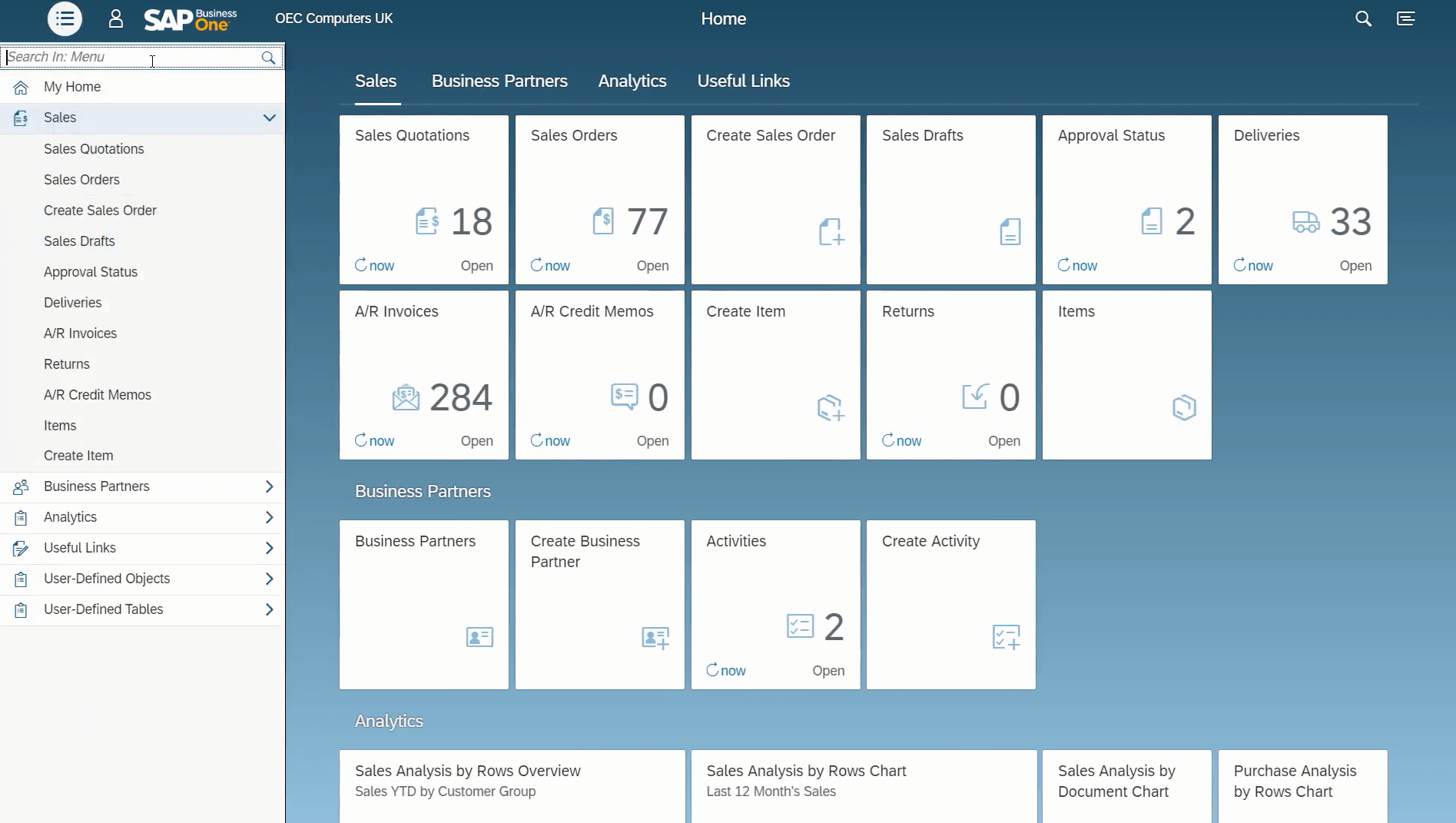
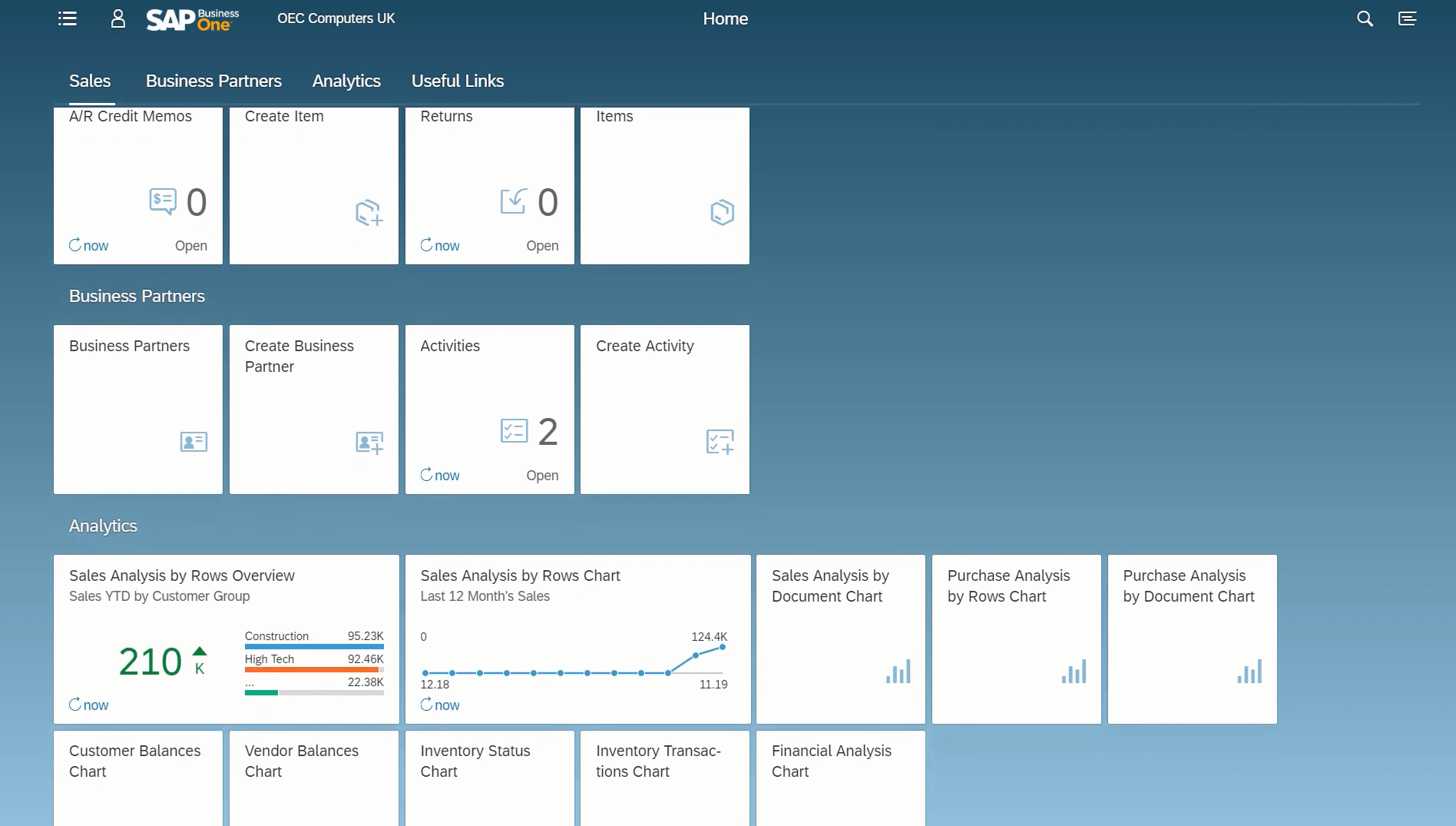
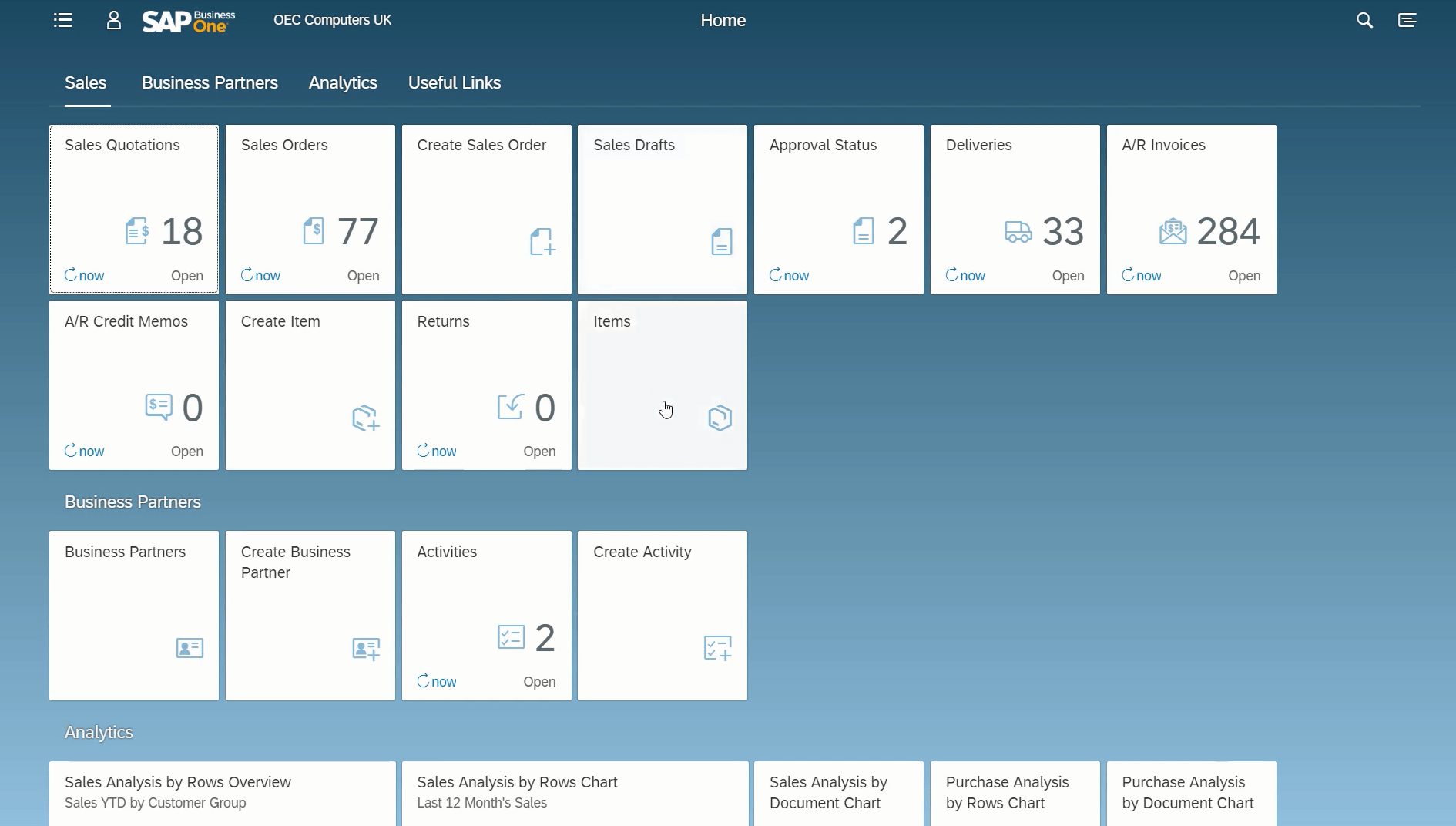
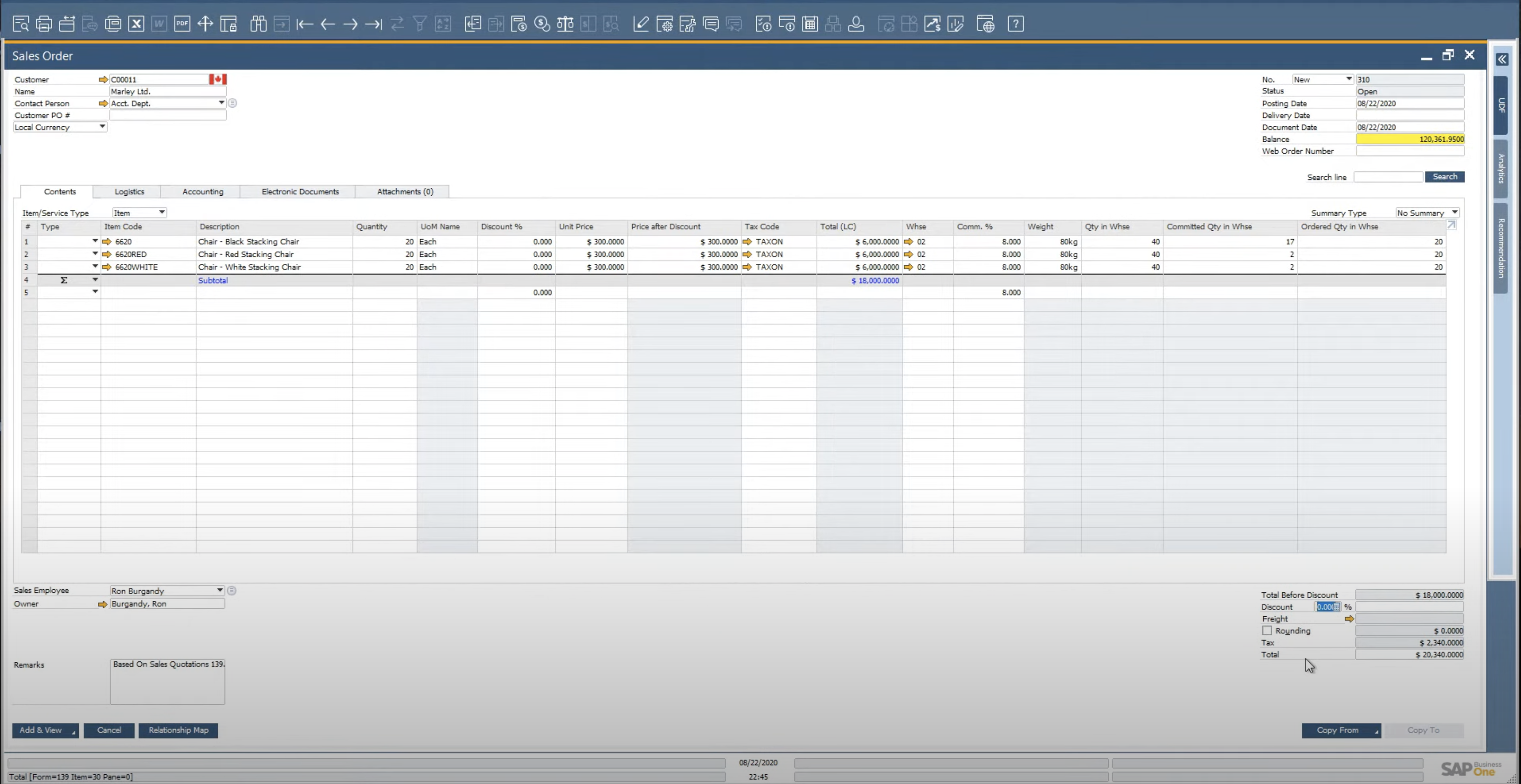
NetSuite
NetSuite is a cloud-based enterprise resource planning (ERP) software solution that provides small businesses with a comprehensive suite of business management tools to help them streamline their operations and make data-driven decisions.
NetSuite's core functionalities include accounting, finance management, inventory management, order management, customer relationship management (CRM), and e-commerce capabilities. The software is designed to automate repetitive processes, eliminate manual data entry, and improve the accuracy of financial reporting.
Small businesses can use NetSuite to manage their financial transactions, including accounts payable and accounts receivable, bank reconciliation, and financial reporting. The software also provides tools for tracking inventory, managing orders, and handling returns, making it easier for businesses to manage their operations efficiently.
NetSuite's CRM capabilities allow businesses to manage their customer interactions, track sales opportunities, and manage marketing campaigns. The software can also be integrated with popular e-commerce platforms, such as Shopify and Magento, to provide a seamless customer experience across all channels.
NetSuite's cloud-based architecture enables small businesses to access their data from anywhere, at any time, using any device with an internet connection. This makes it an ideal solution for small businesses with remote or distributed teams.




Sage Intacct
Sage Intacct is a cloud-based financial management software that is designed to streamline and automate financial processes for small and medium-sized businesses. It provides a comprehensive set of features for managing accounting, financial reporting, budgeting, and more.
Some of the key features of Sage Intacct that can be useful for small businesses include:
-
Financial Management: Sage Intacct allows businesses to manage their financials more efficiently by providing tools for accounts payable and receivable, general ledger, cash management, and more.
-
Multi-Entity Management: This feature allows businesses with multiple entities or subsidiaries to consolidate financial data and manage them from a single system.
-
Inventory Management: Sage Intacct provides real-time visibility into inventory levels, costs, and movements, enabling businesses to optimize inventory levels and reduce carrying costs.
-
Reporting and Analytics: Sage Intacct offers robust reporting and analytics capabilities, allowing businesses to generate financial reports and insights that help them make informed decisions.
-
Time and Expense Management: Sage Intacct's time and expense management module enables businesses to automate and streamline their employee time tracking and expense reimbursement processes.
-
Project Accounting: Sage Intacct offers project accounting capabilities, enabling businesses to track and manage project costs, revenue, and profitability.
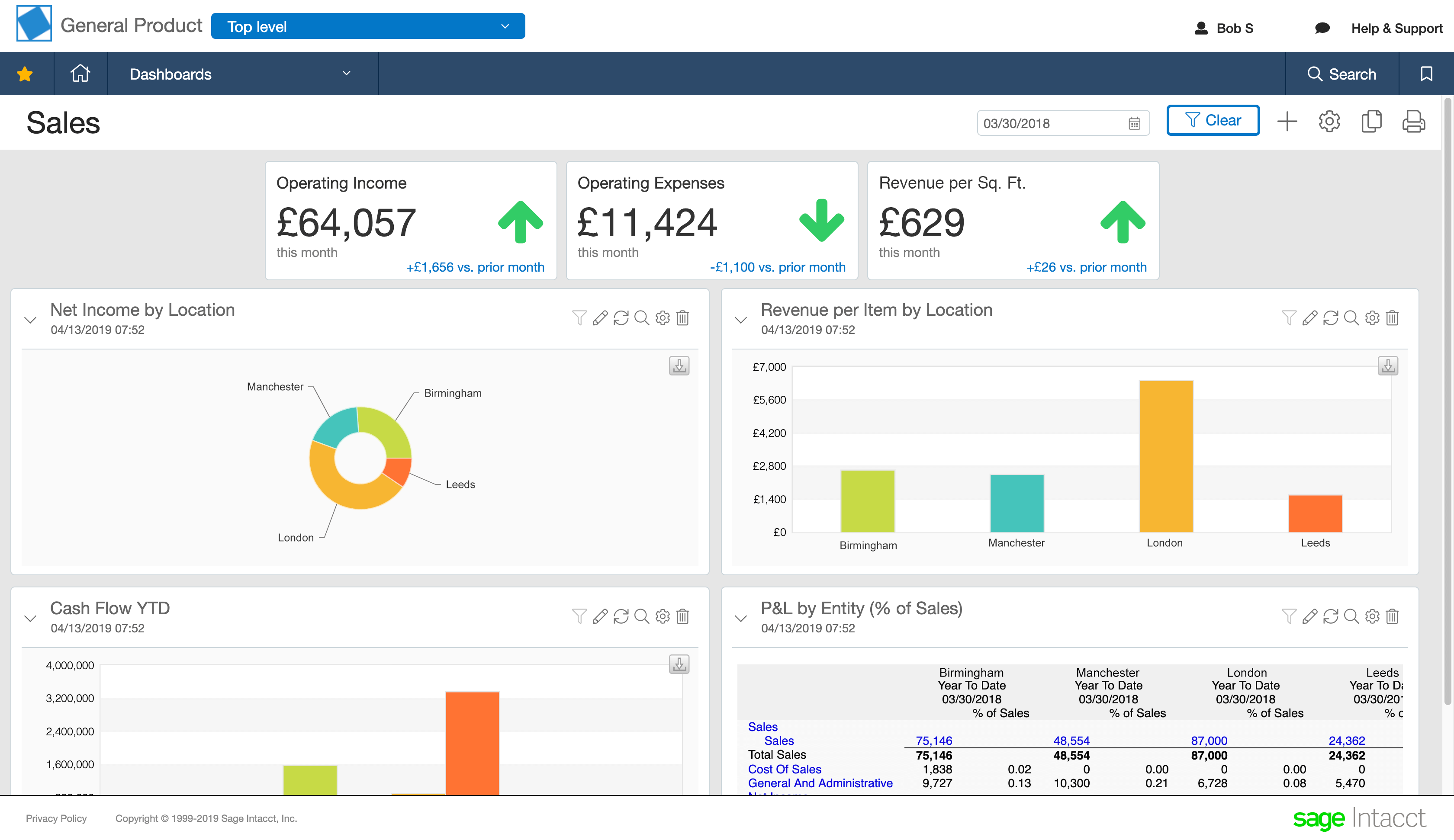
Infor CloudSuite Industrial
Infor CloudSuite Industrial is an enterprise resource planning (ERP) solution designed specifically for manufacturing and distribution businesses. It provides a range of functionalities to help businesses manage their operations, including supply chain management, financial management, human capital management, and production management.
Some of the key features of Infor CloudSuite Industrial include:
-
Advanced Planning and Scheduling (APS) - Enables businesses to optimize their production schedules, ensuring they can meet customer demands while minimizing inventory and production costs.
-
Material Requirements Planning (MRP) - Helps businesses ensure that they have the right materials on hand to meet production needs, minimizing stockouts and excess inventory.
-
Quality Management - Allows businesses to track and manage quality control processes, ensuring that products meet quality standards.
-
Customer Relationship Management (CRM) - Provides tools to manage customer interactions and improve customer satisfaction.
-
Financial Management - Helps businesses manage their finances by providing features such as accounts payable/receivable, general ledger, and cash management.
Infor CloudSuite Industrial can be used by small businesses to streamline their manufacturing and distribution operations, improve efficiency, and reduce costs. Small businesses can benefit from the same features and functionalities as larger enterprises, but without the need for extensive IT resources or infrastructure.
By implementing Infor CloudSuite Industrial, small businesses can:
-
Automate processes - This can help reduce errors and improve productivity, allowing businesses to do more with fewer resources.
-
Improve inventory management - Infor CloudSuite Industrial can help small businesses optimize inventory levels, reducing carrying costs and ensuring they have the right materials on hand to meet production needs.
-
Streamline production - By using advanced planning and scheduling tools, small businesses can improve their production schedules, ensuring they can meet customer demands while minimizing costs.
-
Enhance customer satisfaction - Infor CloudSuite Industrial's CRM capabilities can help small businesses better manage customer interactions and improve customer satisfaction.

MS Dynamics 365 Business Central
Microsoft Dynamics Business Central is an all-in-one business management solution designed for small to medium-sized businesses. It combines various business functionalities such as financial management, supply chain management, project management, human resource management, sales and marketing, and inventory management in one integrated system.
Here are some ways small businesses can use Microsoft Dynamics Business Central:
-
Financial management: Business Central offers a complete financial management solution, including general ledger, accounts payable, accounts receivable, cash management, and fixed assets. Small businesses can use it to track and manage their financial transactions, create and manage budgets, and produce financial reports.
-
Inventory management: The solution allows small businesses to manage their inventory levels, track their inventory movements, and automate their purchasing processes. They can also set up minimum and maximum stock levels, create purchase orders, and manage their suppliers and vendors.
-
Sales and marketing: Business Central provides small businesses with a 360-degree view of their customers, from lead generation to sales and post-sales support. They can use it to create quotes, manage their sales pipeline, track their marketing campaigns, and analyze their sales performance.
-
Supply chain management: Business Central helps small businesses streamline their supply chain processes by managing their procurement, manufacturing, and distribution operations. They can use it to create and manage production orders, plan their resources, and optimize their warehouse operations.
-
Human resource management: The solution offers small businesses a range of HR management features, including employee data management, payroll processing, and time and attendance tracking. They can also use it to manage their employee benefits, performance appraisals, and training and development programs.
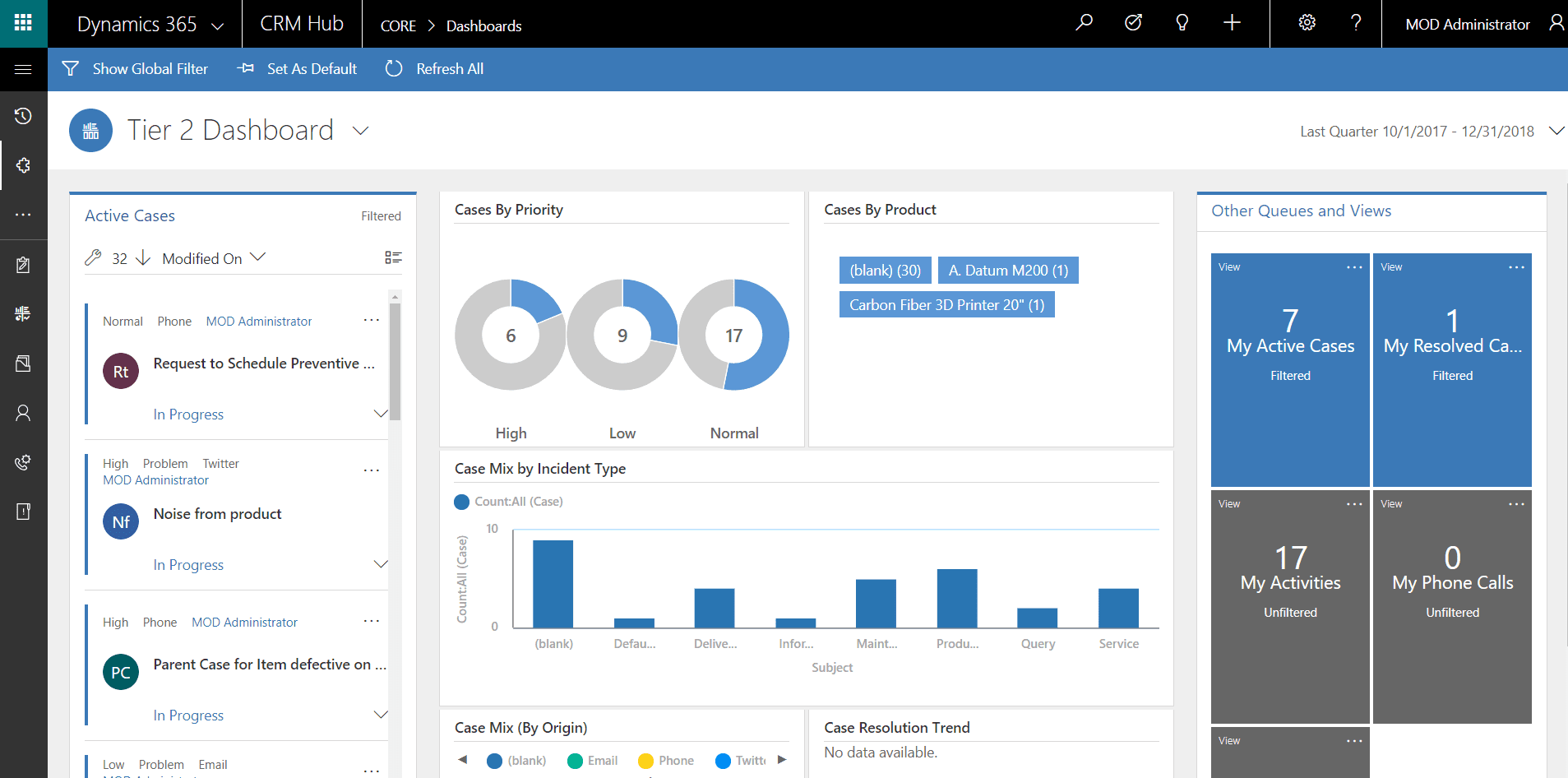
Acumatica
Acumatica is a cloud-based Enterprise Resource Planning (ERP) software that can be used by small businesses to manage their core business functions like accounting, inventory, sales, purchasing, and production. Acumatica can be customized to meet the specific needs of small businesses in different industries and can be accessed from anywhere with an internet connection.
Here are some ways in which Acumatica can be used as a small business ERP:
-
Financial Management: Acumatica provides financial management tools to help small businesses manage their finances, including accounts payable and receivable, bank reconciliation, cash management, general ledger, and financial reporting.
-
Inventory Management: Acumatica offers inventory management tools to help small businesses track their inventory levels, automate purchasing and sales processes, and optimize inventory replenishment.
-
Sales and Customer Management: Acumatica includes tools for managing customer relationships, including lead management, opportunity tracking, and customer service management. The software also provides sales management tools to help small businesses manage their sales pipeline, track sales activities, and generate sales forecasts.
-
Project Management: Acumatica has project management tools that allow small businesses to manage their projects, track project budgets, monitor project progress, and generate project reports.
-
Manufacturing Management: Acumatica can be used to manage manufacturing processes, including bills of materials, production scheduling, and material requirements planning (MRP).
-
Reporting and Analytics: Acumatica provides real-time reporting and analytics tools that enable small businesses to make data-driven decisions based on accurate and up-to-date information.
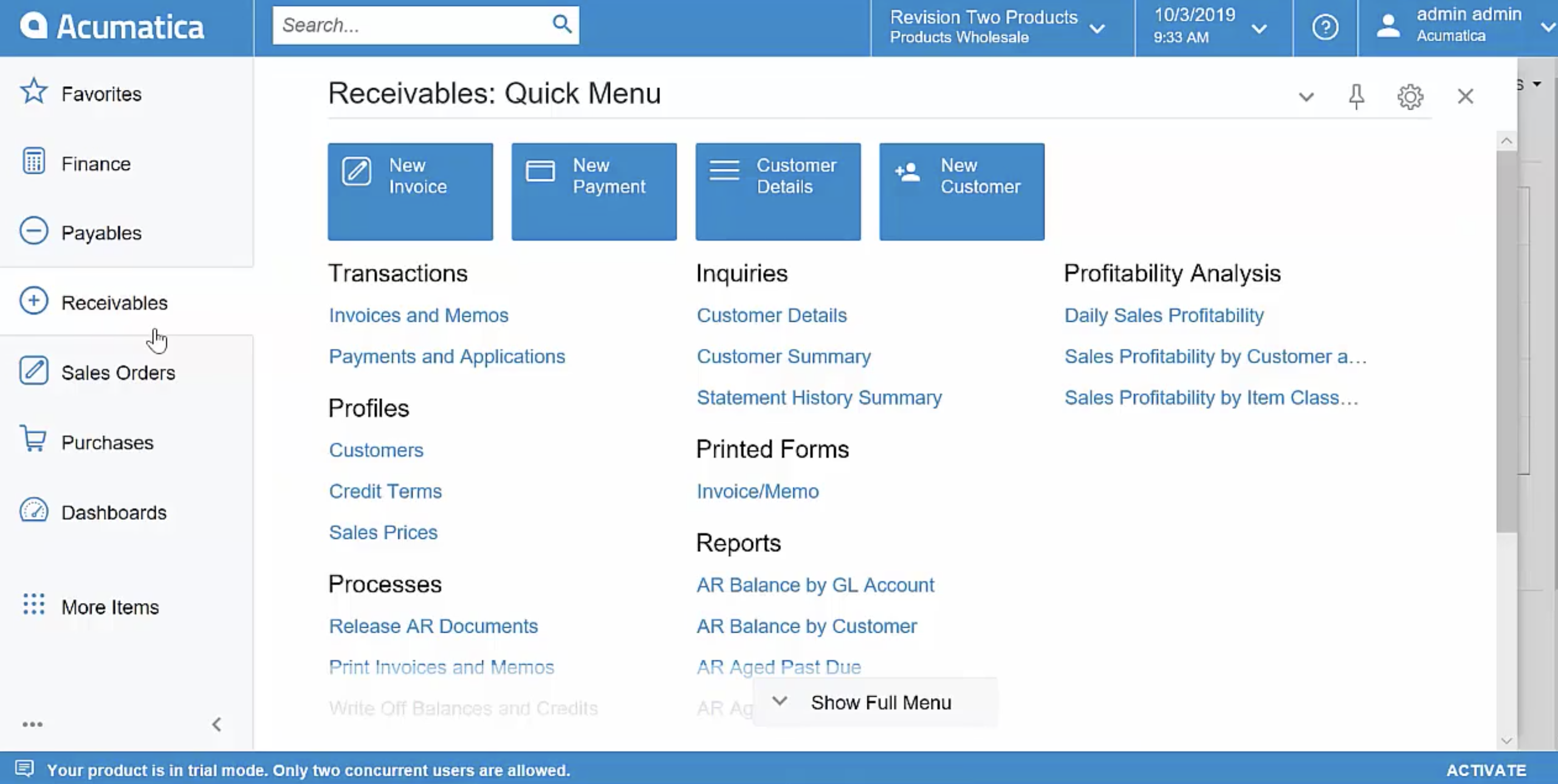
FinancialForce
FinancialForce ERP is an enterprise resource planning (ERP) software that is designed to help businesses manage their financial operations, customer relationships, and supply chain management all in one place. It is built on the Salesforce platform and is specifically geared towards small and medium-sized businesses.
FinancialForce ERP offers a range of features that can be useful for small businesses, including:
-
Accounting and financial management: FinancialForce ERP provides tools for managing financial transactions, invoicing, accounts payable and receivable, general ledger, and financial reporting.
-
Customer relationship management (CRM): The software includes features for managing customer accounts, tracking interactions with customers, and analyzing customer data to improve customer relationships.
-
Supply chain management: FinancialForce ERP provides tools for managing inventory, purchasing, and order management to help businesses optimize their supply chain operations.
-
Project management: The software includes project management tools for tracking project tasks, timelines, budgets, and resources.
-
Human resources management: FinancialForce ERP also provides HR management tools for managing employee records, payroll, benefits, and compliance.
Small businesses can use FinancialForce ERP to streamline their business processes, increase efficiency, and improve decision-making by having real-time data available at their fingertips. The software can help small businesses better manage their finances, improve customer relationships, and optimize their supply chain operations. Additionally, since it is built on the Salesforce platform, FinancialForce ERP can integrate with other Salesforce apps and third-party software, making it a flexible and scalable solution for growing businesses.

What's the difference between PSA & ERP?
In the professional services world, many organizations are adopting professional services automation tools to increase productivity. But what is professional services automation and how does it differ from enterprise resource planning?
ERP Requirements Gathering (RFI, RFP) Template Excel
Start your ERP evaluation process with our RFI & RFP Excel template for the engineering industry.
ERP Project Budget Calculator Template
Calculate the costs of your ERP project with our prebuilt budget calculator.
Small Business ERP Frequently Asked Questions
What is the best ERP for small businesses?
Small business ERP software is extremely popular and there are many vendors as well as many solutions available on the market. Small business ERP vendors include the likes of SAP, Oracle, Netsuite, Workday, Odoo, Infor, Sage and many more.
Deciding on the best ERP for small business depends on many factors including your industry, business size, growth ambitions, geography and more.
How much does Small Business ERP software cost?
Small business ERP software typically has a mixture of costs including ERP implementation, ERP software licenses and support.
Starting costs for SMB ERP can be very low, with some open source and free ERP software on the market, but typically small businesses can expect to pay a minimum of $10,000 per year for software licensing and 2-5X that figure for initial. implementation.
Costs for small business ERP software can grow quickly however and for a midsize organisation quickly enter six figures in year 1.
Key Features of Small Business ERP
Small businesses need a slightly different approach to larger businesses when it comes to ERP software.
One of the key features of small business ERP software is typically to have it as a SaaS or Cloud ERP solution, which can save you and your colleagues a lot of time and money.
Secondly, small business ERP software should come with predefined processes and ways of working which help to standardise your business and also speed up your small business ERP implementation.
Another key feature of small business ERP is scalability. Whilst your business may be small today, in a few years it could be very different as well as much larger. It's therefore key to have a scalable solution which can adapt with the times.
How should I compare small business ERP software?
It's important to consider what is important for your small business ERP solution before starting this exercise.
Based on this, we recommend building an ERP requirements document which details the needs of your small business ERP software. This can then be shared with vendors and SMB ERP providers.
Implementing ERP for Small Businesses
Implementing ERP software for small businesses can often be done quickly. This is largely because small businesses often have less employees, complexity, sites and processes. A small business can expect to implement an ERP system in as little as 4-6 weeks and up to 12 months depending on various factors.
Benefits of ERP for Small Businesses
Small businesses can benefit from implementing SMB ERP systems in multiple ways including:
- Scalability
- Increased profitability
- Increased consistency
- Process standardization
- Increased investor confidence
- Increase compliance to regulations
- Decreased wastage
- Increased employee satisfaction
- Increased financial reporting & business intelligence
- Increased cashflow
How does ERP help Small Businesses?
Small businesses tend to use a series of applications, tools, spreadsheets and accounting systems to operate their businesses. Naturally, they acquire these processes through sporadic changes and growth spurts, but unfortunately the price of this is data siloes and inefficiencies.
Modern ERP systems designed for small businesses and SMEs provide integrated functionality across the following modules:
Accounting and Financials
Unify financials across your business and grow into new territories with multiple companies using modern SMB ERP.
Purchasing
Control spend and optimise requisition processes using popular SMB ERP solutions.
Asset Management
Manage business assets with ERP for engineering to easily capitalise and monitor your assets.
Reporting and dashboards
Develop a single view of your engineering business in order to increase transparency, decision-making and ultimately drive results.
Expenses management
Automate expenses requisitions and approvals with integrated expenses management to help your engineers be more productive.
Customer service
Review your customer service history and provide better cross-selling, up-selling and post-sale customer support to help deliver products more accurately.
Inventory management
Deliver comprehensive inventory management that provides insight into your entire flow, from purchasing to transportation and delivery.
Sales management
Track & plan sales pipeline, score leads, prospects and forecast opportunities in real-time across territories, accounts and teams.
Global management
Compile global financial, manufacturing, project and process information into a central location.
Engineering management
Combine your sales, customer service, and engineering processes into a single solution designed to meet the needs of a broad range of engineering tasks.
Customisation
Flexible ERP software that's built on an open and extensible foundation, allowing you to choose the features that suit your business needs.
Mobility
Access your ERP data at any time so you're more available to customers and take advantage of unexpected opportunities as they surface.
Development tools
ERP software for the engineering industry features all of the tailored solutions an organization needs to design, build and document their projects faster.
Updates and maintenance
Backed by the consistency of market-leading vendors, ERP software regularly updates to ensure an optimal user experience.
Versatile deployments
Connects customers, partners, and employees through real-time digital relationships to improve the way you do business.
Unlimited support
ERP implementation is a longterm strategic partnership and vendors provide free unlimited technical support for clients.
Small Business ERP Evaluation Process
-
Build An ERP Business Case 2-3 weeksA solid business case is a foundation you need if you are going to persuade your organization to consider enterprise resource planning (ERP) implementation. Download Business Case Template
-
Compare ERP Vendors 2-3 weeksIt’s critical to understand which ERP vendor is right for your business. Before you decide on the vendor for your company, take a look at our solution pages to find out which vendor would be best. Compare ERP Vendors
-
Get Pricing Estimates 1-2 weeksOur exclusive process removes all the salesmen from the equation and gets you real pricing estimates from every qualified vendor. Contact Us For Pricing
-
Organize A Solution Demo 1-2 weeksDuring a demo, you will learn about how large corporations are making use of ERP software and how they are improving their business practices. Book A Demo
-
Build ERP Requirements 3-4 weeksIf you're looking to buy an Enterprise Resource Planning (ERP) system or upgrade your internal systems you will need a clear definition of all the functions, features and capabilities that you expect. You can approach this challenge by building what's called an ERP requirements document. Download ERP Requirements Template
-
Shortlist 4-8 Vendors 1 weekOne of the most important phases in the ERP project lifecycle is selecting the right software vendor. Ideally, you should shortlist 4-8 vendors - based on their credentials and your requirements. Contact Us To Shortlist Vendors













